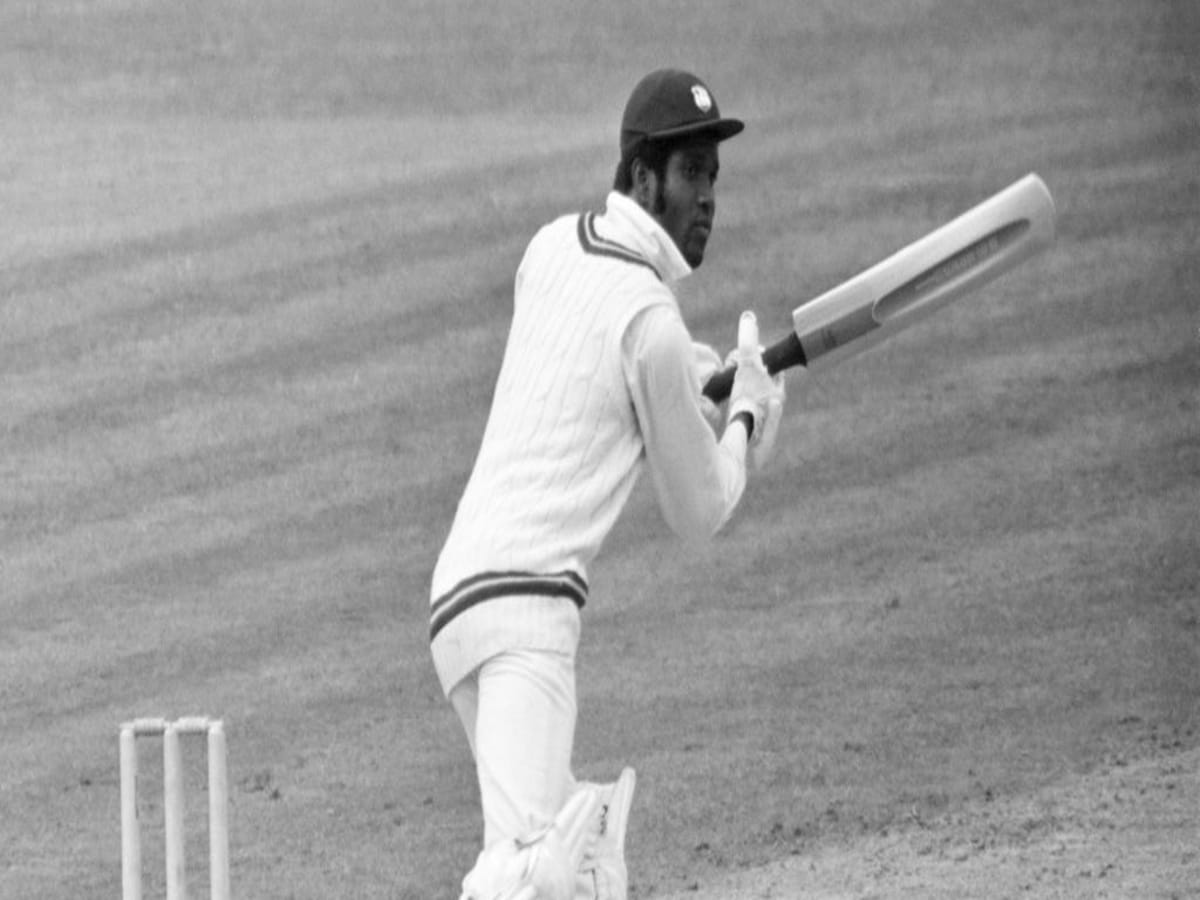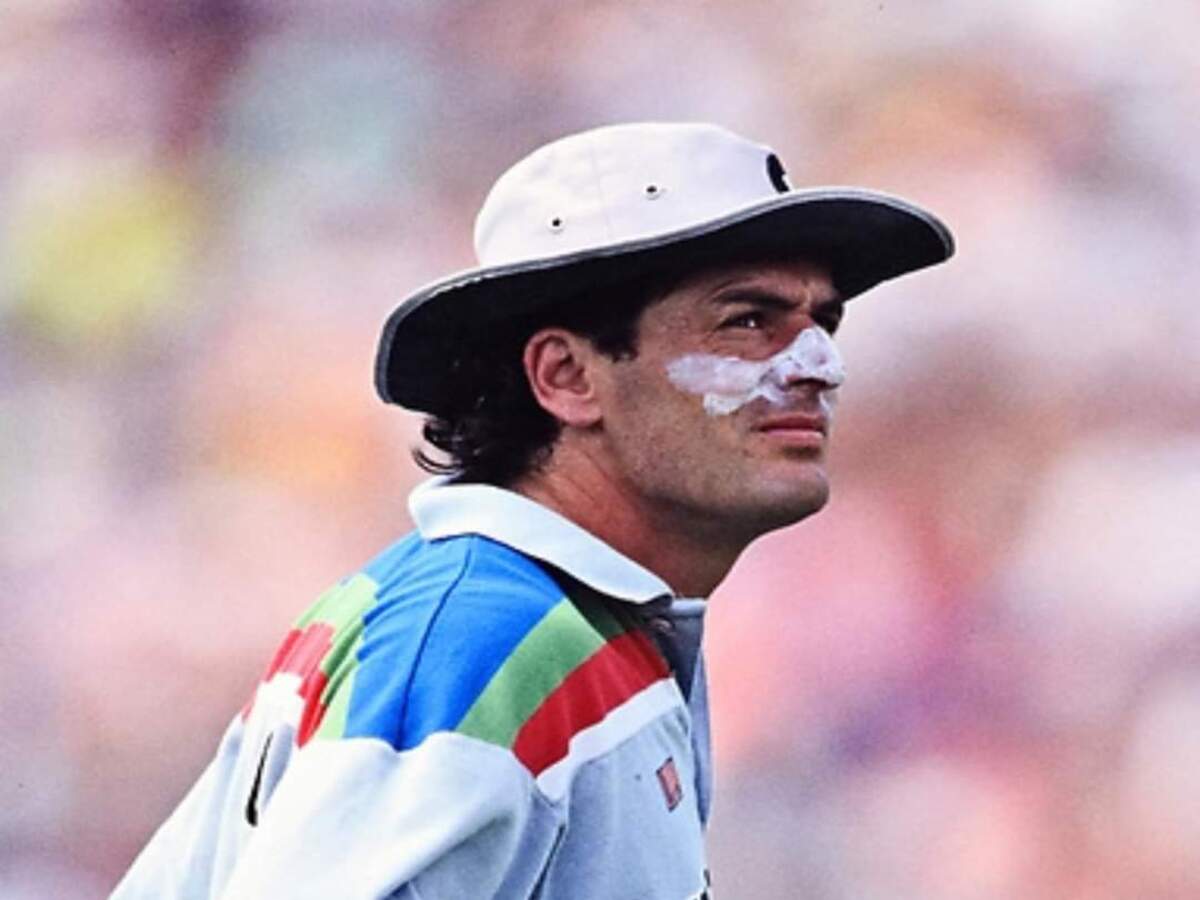On the contrary, there are some unlucky batsmen who whenever they scored a century in Test cricket, the team either lost or the match was drawn. The team did not win the match in which he scored a century. The name of India's Vijay Manjrekar is also included in this. Vijay Manjrekar, father of Sanjay Manjrekar, who played for India in the 1980s and 1990s, scored 7 centuries in 55 Test matches between 1951 and 1965, but the Indian team could not win even one of them.
PressNews24 provides latest news, bollywood news, breaking news hollywood, top tech news, business standard news, indian economy news, world economy news, travel news, mumbai news, latest news mumbai loksabha election 2024, video viral news, delhi news, Only at PressNews24.in
This bowler's rule in T20 World Cup, average-economy is unmatched, has taken most wickets twice
Those prominent unlucky batsmen who scored a century in a Test in which either the team lost or the match was drawn.
Asanka Gurusinghe has scored 7 test centuries
Sri Lankan left-handed batsman Asanka Gurusingha played 41 Test and 147 ODI matches from 1985 to 1996. Gurusingha was a key member of the 1996 World Cup champion Sri Lankan team. He scored 307 runs in 6 matches of the tournament at an average of 51.16. Gurusingha scored 7 centuries in Tests and his highest score was 143 runs, which he scored in the Melbourne Test against Australia in 1995. He has also achieved the feat of scoring centuries in both the innings of a Test. In February 1991, he scored 119 runs in the first innings of the Hamilton Test against New Zealand and 102 runs in the second innings. However, in every Test in which Gurusingha scored a century, no Sri Lankan side got a victory. Of the six Tests in which he scored 7 centuries (centuries in both innings of a Test), Sri Lanka lost two while four were drawn.
Such cricketers whose wives also play international cricket, one pair has won the World Cup!
Vijay Manjrekar was adept in facing fast bowling
Vijay Manjrekar, an excellent right-handed batsman, played 55 Tests for India and scored 3208 runs at an average of 39.12, which included 7 Test centuries. His highest score in Test cricket was 189 not out, which he scored against England in Delhi in December 1961. Unlike most batsmen of his era, Vijay Manjrekar was adept at facing fast bowling. Of the seven Test matches in which he scored a century, the Indian team had to face defeat in one while six Test matches were drawn without any win or loss.
T20 World Cup: The team that has never won has a score of 200+
Lawrence Rowe scored centuries in both innings of his debut Test.

West Indies' Lawrence Rowe made an explosive start to his Test career. In his first Test in 1972, he scored a double century in the first innings and an unbeaten century in the second innings. However, he could not maintain the shine of the initial phase for long. It was during his cricket career that he faced problems related to his vision. His career was also affected due to allergy to grass. Due to this, Rowe could play only 30 Tests and 11 ODIs. Rowe has scored 200 runs in 30 Tests at an average of 43.55, which includes 7 centuries. Rowe also scored a triple and a double century in Test cricket, but the Indies team never won during his seven centuries. Of the six Test matches in which Rowe scored this century (centuries in both innings of a Test), four were drawn while the Indies team had to face defeat in two.
Dhoni-Rizwan, Salman Butt-Jimmy Amarnath…special similarity in the early centuries of cricketers
Bevan Congdon was unmatched in both batting and bowling.
New Zealand's Bevan Congdon played 61 Tests and 11 ODIs as an all-rounder between 1965 and 1975. A right-handed batsman and medium pace bowler, Congdon also opened the batting and bowling for the Kiwis in some Tests. Congdon, who scored 3448 runs (7 centuries) in Test cricket at an average of 32.22, also took 59 wickets at an average of 36.50. His highest score in Test cricket was 176 runs. In ODI, apart from scoring 338 runs (one century, highest score 101) at an average of 56.33, he also took 7 wickets. Out of the seven tests in which he scored centuries, the Kiwi team lost one while 6 tests were drawn.
In the test in which 8 centuries were scored in just two innings, all the players of one team bowled.
Andrew Jones has scored centuries in both innings of the Test

Andrew Jones was counted among the reliable batsmen of New Zealand of his era. He played 39 Test and 87 ODI matches between 1987 and 1995. In Test cricket, Jones scored 2922 runs at an average of 44.27, which included 7 centuries. During this period, Andrew Jones's highest score of 186 runs was the highest score in Test cricket. Jones was a capable batsman and the achievement of scoring centuries in both innings of the Test and making a partnership of 467 runs for the third wicket with Martin Crowe is also recorded in his name. In the 1991 Wellington Test, Jones added 467 runs with Martin Crowe, the second highest ever partnership for the third wicket. In the same year, in the Hamilton Test against Sri Lanka, he scored 122 runs in the first innings and 100 not out in the second innings. In ODIs, Jones scored 2784 runs with a highest score of 93 and an average of 35.69, including 25 half-centuries. Unfortunately, he could not convert any of his half-centuries into a century. Jones was unfortunate that out of the six Tests in which he scored centuries (centuries in both innings of a Test), the team could not win even one. All six tests were drawn.
tag: Cricket, Sri Lanka, team india, test cricket
first published : May 15, 2024, 4:04 pm IST